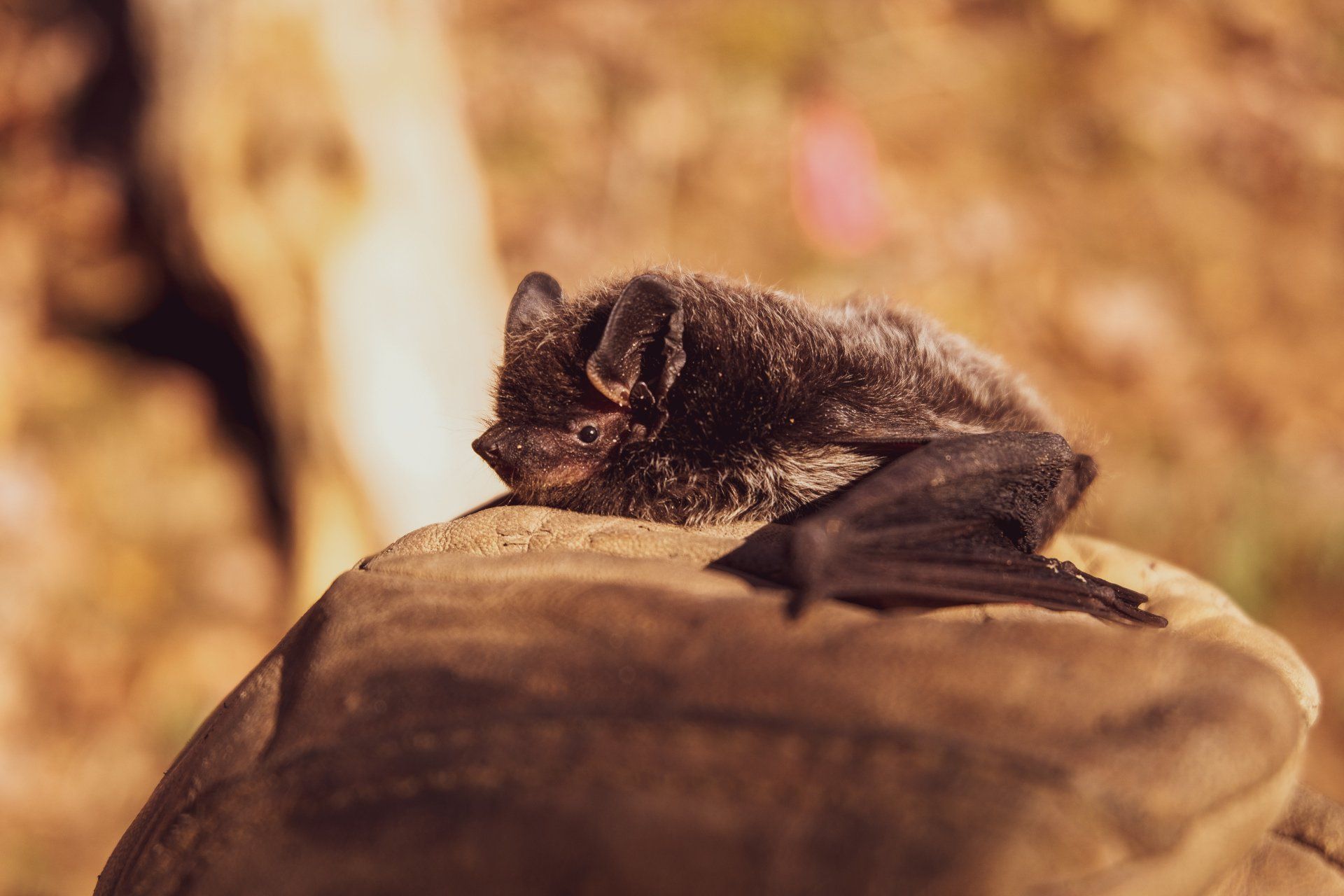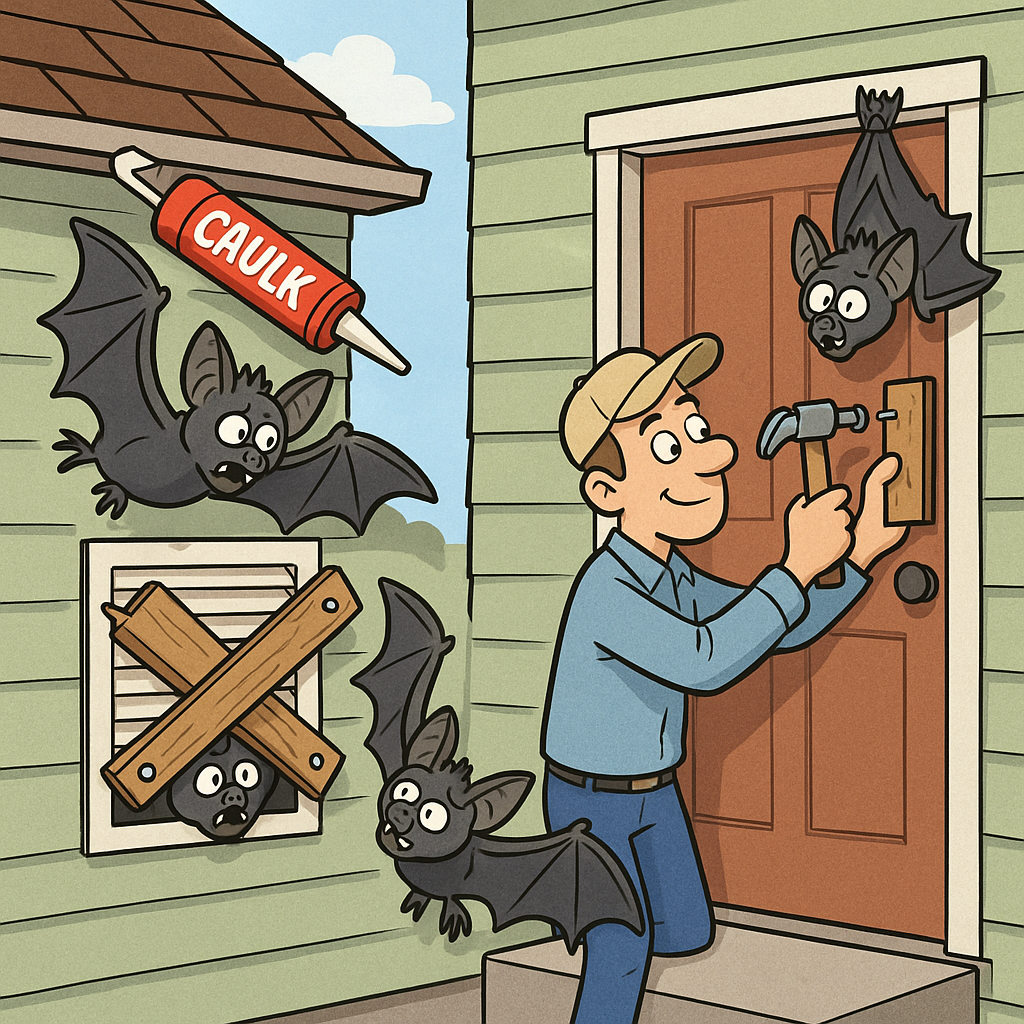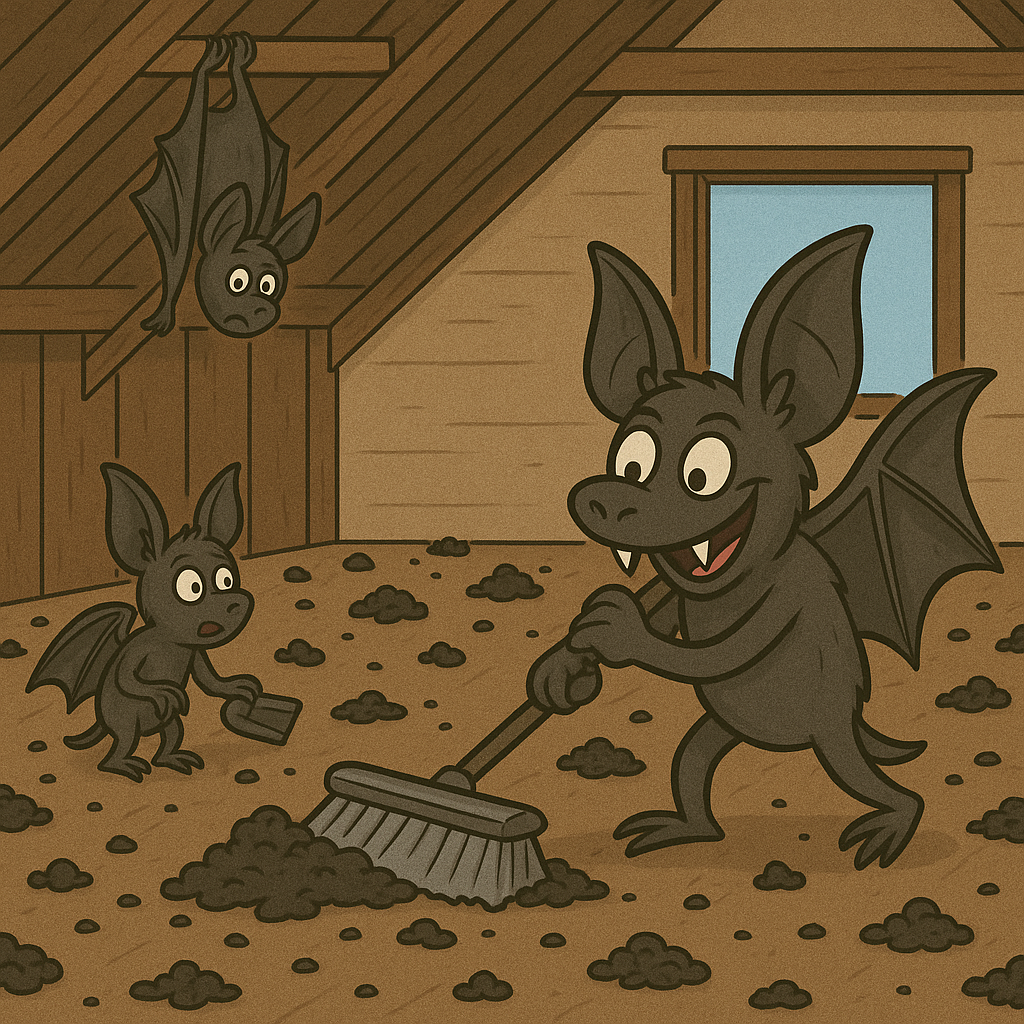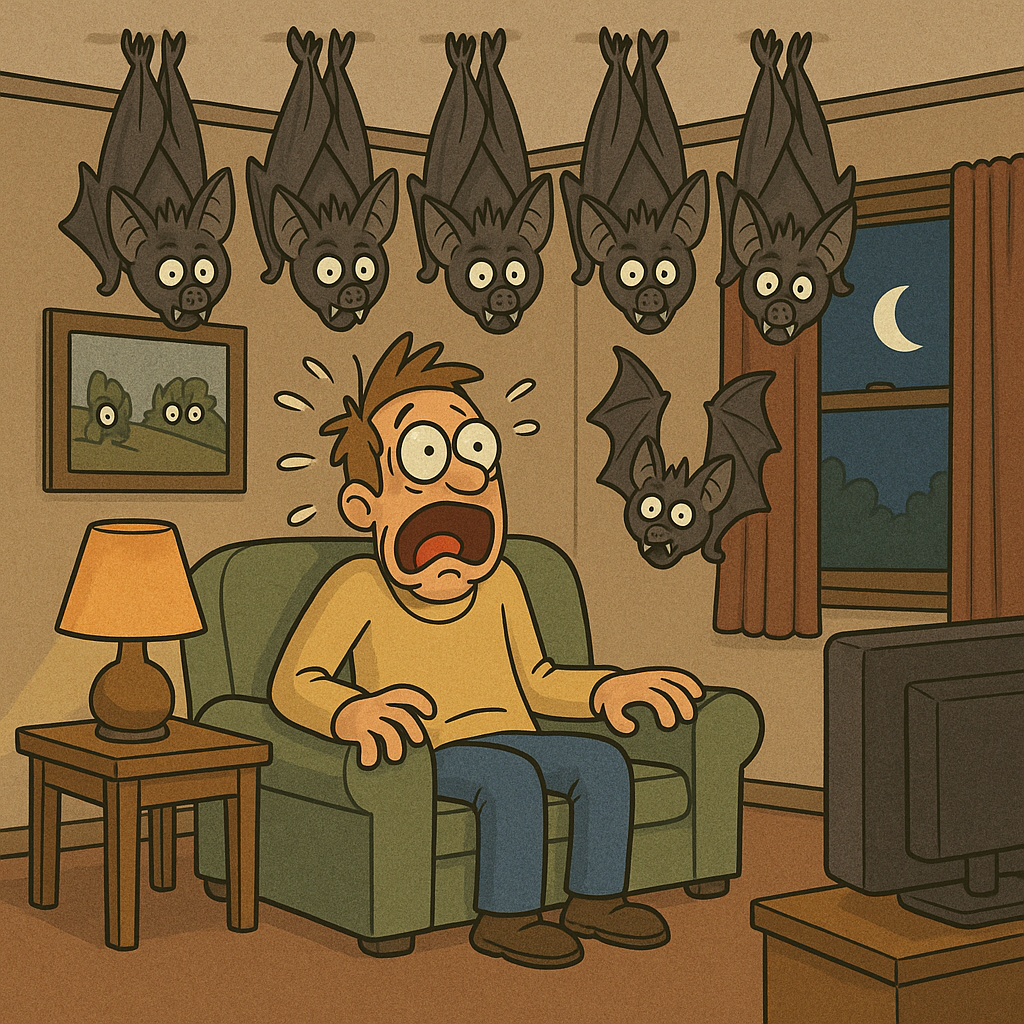Bat Control Specialists
Professional Bat Removal & Exclusion Services
Safe, humane, and effective solutions backed by 30+ years of experience—protecting your home and the wildlife around it.
For fastest service please call or text
Bat Control Specialists
Bat Control Specialists is a family-owned business with over 30 years of experience in humane bat removal and prevention. Our team, rooted in values of integrity, dedication, and exceptional service, has been safeguarding homes and businesses from bat infestations for generations. We pride ourselves on combining traditional, trusted methods with the latest advancements in wildlife control to deliver solutions that are both effective and environmentally friendly.
Our expertise extends beyond simple bat removal; we offer comprehensive services that include exclusion, guano cleanup, damage repair, and prevention consultations. Every member of our team is trained to handle each situation with care and precision, ensuring the safety of both our clients and the bats we protect. Our long-standing reputation for excellence is built on a foundation of trust and customer satisfaction, making us the go-to choice for reliable bat control solutions. Whether you're dealing with a minor bat issue or a major infestation, Bat Control Specialists are here to restore your peace of mind and ensure a bat-free environment for the future.
Are You Dealing with a Bat Infestation in Your Attic?
Are you dealing with a bat infestation in your attic? Do you hear fluttering at night or find droppings around your home? Or worse yet have they made there way inside your living space?We specialize in safely and humanely removing bats from your property, ensuring they no longer cause harm or disturbance. Our expert team not only handles bat removal but also cleans and sanitizes your attic to restore it to a safe, bat-free environment. With a guarantee on our work, you can trust that your bat problem will be solved—no more worries, no more pests.
Are bats invading your attic and causing unwanted stress? With over 30 years of experience, we specialize in safe, humane bat removal to keep your home bat-free. Our team conducts thorough inspections of both your attic and exterior to identify and resolve the problem at its source. We also clean and sanitize your attic, ensuring a safe and healthy environment. With upfront pricing and no hidden costs, you’ll know exactly what to expect. Plus, we stand by our work with a satisfaction guarantee—so you can have peace of mind knowing your bat problem is solved for good.
Why Choose Us for Bat Control?
Safe, Humane Bat Exclusion
With over 30 years of experience, we specialize in professional bat removal that protects both your home and these essential creatures. Our exclusion methods are effective, humane, and designed to prevent future intrusions.
Honest Communication & Reliable Service
We value transparency and punctuality. From detailed inspections to upfront pricing with no hidden fees, we make sure you’re informed and confident throughout the entire process.
Cleanup, Sanitation & Guaranteed Work
Our service doesn’t stop at removal. we also offer additional services of clean up and sanitization of affected areas to restore a safe, healthy environment—and we back our work with a guarantee for your peace of mind.
Learn More
How Bat Exclusion Works
- Bat exclusion is the safest and most humane method for removing bats from your home or building. Instead of trapping or harming them, exclusion involves identifying and sealing entry points while allowing bats to exit safely without being able to return.
- The process begins with a thorough inspection of your attic and exterior to locate all potential entry and exit points. Once identified, we install specially designed one-way exclusion devices over these openings. These devices let bats leave but prevent them from coming back in. After all bats have exited, we carefully seal up any remaining gaps to ensure they do not return.
- Proper exclusion should be done at the right time of the year, as we want to keep all bats including the new born pups safe while they are too young to fly.
Benefits of Bats
- Bats often get a bad reputation, but they play a vital role in our ecosystem. These nocturnal creatures are natural pest controllers, consuming thousands of insects each night, including mosquitoes, moths, and agricultural pests. By keeping insect populations in check, bats help reduce the need for chemical pesticides, making them an asset to both homeowners and farmers.
- In addition to pest control, bats are important pollinators and seed dispersers. Many plant species, including bananas, avocados, and agave (used to make tequila), rely on bats for pollination. Their ability to spread seeds also contributes to forest regeneration and biodiversity.
- Despite their benefits, bats can become a nuisance when they roost in attics or other parts of a home. If you’re experiencing a bat issue, it’s essential to handle their removal humanely and responsibly. Our bat control services ensure your home remains bat-free while protecting these beneficial creatures and the environment.
Habits and Reproduction of Bats
- Bats are nocturnal mammals that play an essential role in the ecosystem. They are most active at night, using echolocation to navigate and hunt for food, primarily insects, fruit, or nectar, depending on the species. During the day, they roost in caves, trees, and man-made structures like attics or barns. Many bats are social and live in colonies, while some prefer a more solitary lifestyle.
- Bat reproduction is slow compared to other small mammals. Most species give birth to just one pup per year, typically in the spring or early summer. Female bats gather in maternity colonies to raise their young, providing them with warmth and protection. Newborn bats are dependent on their mothers for food and care until they develop the ability to fly and hunt on their own.
- Because of their slow reproduction rate, bat populations can be vulnerable to habitat loss and disease. While they are beneficial to the environment, unwanted bat colonies in homes should be handled humanely to ensure both their protection and the safety of your property.
What Are the Chances of Getting Bit by a Bat That Has Rabies?
- While bats are often associated with rabies, the actual risk of being bitten by a rabid bat is very low. Studies show that less than 1% of bats carry the rabies virus. Bats, like most wild animals, typically avoid human interaction and will not bite unless they feel threatened or are handled.
- However, if a bat is acting unusually—such as being active during the day, struggling to fly, or showing no fear of humans—it could be a sign of illness, including rabies. Because rabies is a serious and fatal disease, any direct contact with a bat should be taken seriously. If you wake up to find a bat in your room or have any unprotected contact with one, it’s important to seek medical advice immediately.
- The best way to avoid potential risks is never to handle bats and to have any unwanted bats in your home removed professionally. Our humane bat exclusion services ensure safe removal while keeping both you and the bats protected.
Fun Facts About Bats
- Bats Are the Only Flying Mammals – While some animals, like flying squirrels, can glide, bats are the only mammals capable of true flight.
- They Come in All Sizes – The smallest bat, the bumblebee bat, is about the size of a penny, while the largest, the flying fox, has a wingspan of up to six feet!
- Bats Help Make Your Favorite Foods – Many fruits, like bananas, mangoes, and avocados, rely on bats for pollination. Even tequila exists thanks to bats pollinating agave plants.
- They’re Pest Control Experts – A single bat can eat up to 1,000 mosquitoes in just one hour, making them natural insect repellents.
- Bats Use Echolocation to “See” in the Dark – While most bats have good eyesight, they navigate and hunt at night using echolocation, emitting high-frequency sounds that bounce off objects.
- They Can Live a Long Time – Despite their small size, some bats live over 30 years in the wild!
- Not All Bats Hang in Caves – While some bats roost in caves, others prefer trees, bridges, and even attics if they find a way inside.
- Baby Bats Are Called Pups – Just like dogs, bat babies are called pups. Mothers form maternity colonies to care for their young until they’re strong enough to fly.
- Some Bats Hibernate, Others Migrate – In colder climates, some bats hibernate through the winter, while others travel long distances to find warmer temperatures.
- Bats Are Not Vampires – While vampire bats do exist, they mainly feed on livestock and only live in Central and South America. Most bats prefer insects, fruit, or nectar.
Bats are fascinating creatures that play a vital role in our ecosystem. While they’re great for the environment, they’re not ideal houseguests! If you have a bat problem, we provide humane removal and exclusion services to keep your home bat-free.
TESTIMONIALS
"Exceptional service! The team resolved our bat issue quickly and professionally. Highly recommend!"
– Emily Ross
"Knowledgeable and efficient. They removed the bats and cleaned up the mess perfectly. Five stars!"
– Mark Davis
"Prompt and thorough. They sealed all entry points, and we haven’t had any problems since."
– Laura Thompson
CONTACT US
For fastest service please call or text





